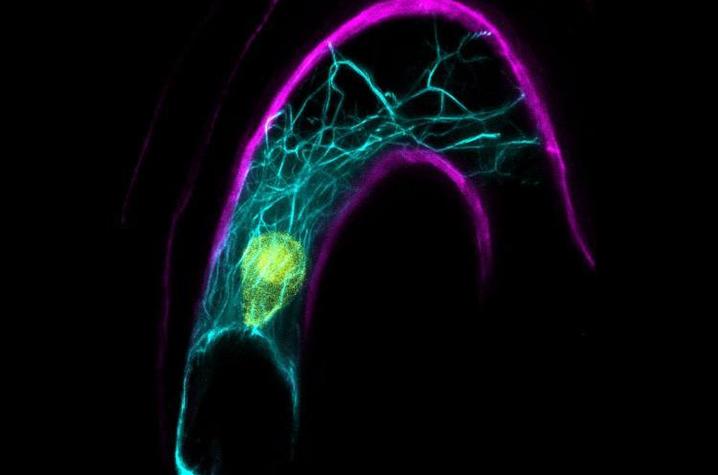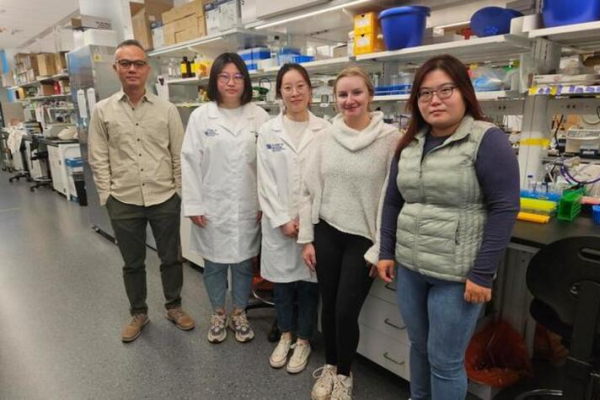Plant Reproduction Finding by UK Scientists Could Lead to More Reliable Crop Production

Understanding the mechanisms behind successful plant reproduction can lead to more reliable crop production and higher yields. In a recent study, an international group of scientists led by researchers from the University of Kentucky College of Agriculture, Food and Environment identified signaling and motor proteins that help guide the male nuclei toward its female counterparts to allow reproduction to occur in flowering plants.
Flowering plants use a unique method called double fertilization in which two male nuclei and two female nuclei containing the plant’s genetic material must meet to produce a seed. This study sheds new light on how the connection between nuclei occurs.
“We knew plants controlled the migration of the male nucleus differently than animals, but how this dynamic movement occurred in plants remained unclear until now,” said Tomokazu Kawashima, assistant professor in the UK Department of Plant and Soil Sciences who led the project.
In the recent study, which was published in the Proceedings of the National Academies of Sciences, the scientists also found plant reproductive cells use a unique signaling pathway which differs from signaling systems in other parts of the plant.
“This means that the knowledge we have accumulated from studies in leaves and stems do not apply to plant sexual reproduction, including seed development,” Kawashima said. “Further detailed investigation directly into these sexual cells are critical to helping scientists understand how the reproductive process has evolved.”
Kawashima specializes in land plant evolution and says this finding will not only help him better understand how flowering plants control double fertilization to produce seeds but may help scientists determine how to efficiently produce crops, particularly in unstable climate conditions.
“Higher or lower temperatures can negatively affect plant fertilization, including the migration of the male nucleus,” Kawashima said. “This finding will give scientists new ideas and strategies to maintain or improve crop production.”
Kawashima was joined on the project by UK doctoral students Mohammad Foteh Ali and Fatema Umma. Samuel Hacker, a recent graduate of the college’s agricultural and medical biotechnology program, also contributed to the project.
“We were really excited about our achievement, and even during this pandemic, we kept going to get results for this publication,” Kawashima said. “Mohammad and Fatema were really impressive and completed the work without any delay! Moreover, I am grateful to have had a talented ABT undergraduate student, Sam Hacker, in my lab for this project. He understands how to process microscopy images to extract quantitative data for comparative analyses.”
Additional contributors to the paper include scientists from Wuhan University in China and Yokohama City University in Japan.
Research reported in this publication was supported by the National Science Foundation Division of Integrative Organismal Systems under Award Number 1928836. The opinions, findings, and conclusions or recommendations expressed are those of the author(s) and do not necessarily reflect the views of the National Science Foundation.
The paper is available online at https://www.pnas.org/content/early/2020/12/01/2015550117.
More from this series Research Support
Credits
Katie Pratt (Agricultural Communications)


